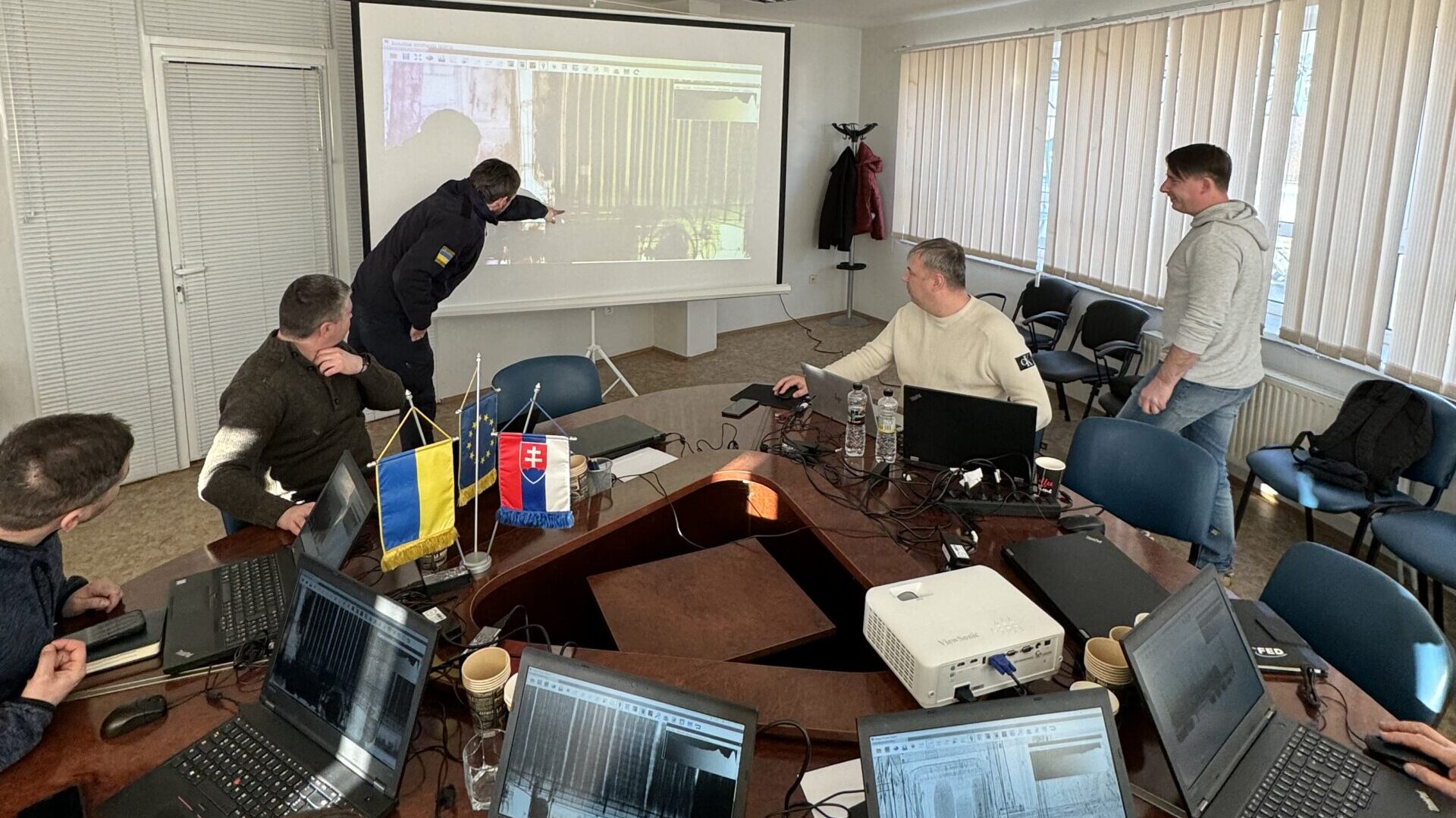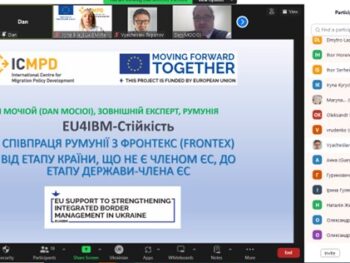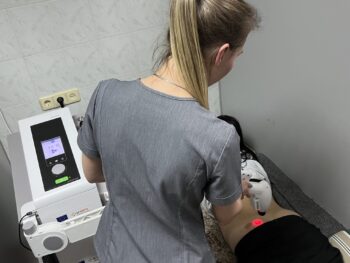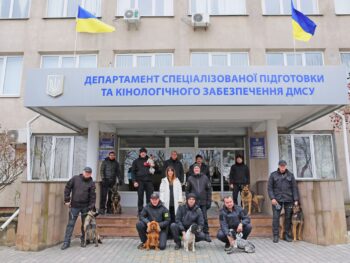From 9 to 12 January 2024, twelve representatives of the State Customs Service (SCS) of Ukraine participated in specialized training on X-ray cargo scanner image interpretation. The activity took place in Uzhhorod and was organised and delivered by experts of the “EU Support in Strengthening Integrated Border Management in Ukraine – Resilience (EU4IBM-Resilience)” Project funded by the EU and implemented by the International Centre for Migration Policy Development.

The training program focused on advancing the capabilities of Ukrainian customs officials in reading and interpreting images generated by stationary Nuctech MB 1215 gantry cargo X-ray scanners. This type of equipment is a crucial tool employed by customs officers to carry out non-intrusive checks of cargo vehicles thus allowing to save precious time and efforts and streamline trade flows across the border. The use of cargo scanners helps reduce security risks, violations of customs rules, and the illicit movement of goods at border crossing points.
“Through strategic initiatives, such as this advanced X-ray training for customs personnel, we aim to enhance our partners’ expertise and equip them with the skills needed to navigate the complexities of modern border management and contribute to more secured, yet user-friendly, borders”, notes Vyacheslav Toporov, EU4IBM-Resilience Project Manager.
Based on the previously identified needs and EU countries’ good practices, the EU4IBM-Resilience project experts outlined a comprehensive two-day training session. On the first day, the participants delved into essential topics such as radiation safety, image interpretation, systematic image research, and practical tasks tailored to the operators’ needs. The second day shifted the focus to real-world application, involving hands-on exercises where trainers from the Estonian Customs Administration evaluated existing techniques and provided suggestions to enhance the work capacity and efficiency of the SCS personnel.
“During the training, I received valuable insights into new methods of analysing scanned images. The training was accessible to both experienced scanner operators and novices, presenting information in clear language. The guest experts gave us practical knowledge to identify prohibited items, materials, and substances. The training certainly allowed us to better understand the existing contraband concealment methods identified within the EU member states’’, shared Vitaliy Modnyi, Head of the Department of Mobile Scanning Systems of Chernivtsi Customs.
The EU4IBM-Resilience Project Team is actively working to deliver a series of training sessions for the SCS personnel throughout this year. The programs are designed to address the nuanced challenges faced by customs officers in their daily operations at the state border of Ukraine. Moreover, the training aims to foster the exchange of knowledge and expert insights between Ukrainian customs officers and their counterparts from EU member states.





